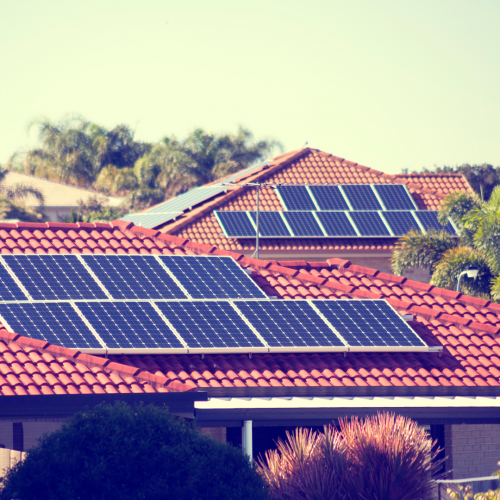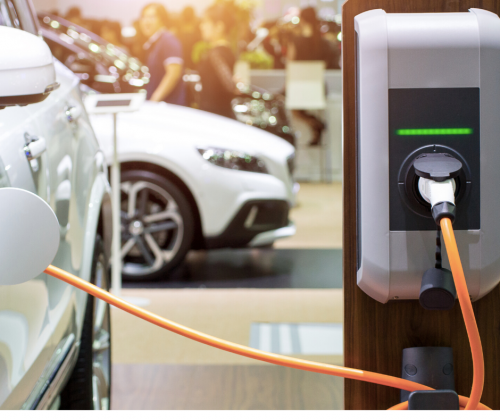Florida ranks as the second-largest producer of electricity and third-largest consumer of electricity in the nation, according to the U.S. Energy Information Administration. In 2021, three-fourths of Florida’s electricity was generated by natural gas, with the remainder generated by renewable sources such as solar energy and non-renewable sources like coal and nuclear power. With such high energy production and consumption and an ever-increasing population, both non-renewable and renewable energy sources become important in policymaking decisions.
Each year, there are multiple bills related to energy issues such as energy efficiency, renewable energy, utilities, natural gas, and more. Here’s what this year’s energy bills are all about:
Preemptions Related to Energy
Two identical bills — SB 1238, introduced by Florida State Sen. Ana Maria Rodriguez (R), and HB 1217, introduced by Florida State Rep. Lauren Melo (R) — would prohibit local governments from requiring the use of energy-saving materials in construction, except for the purpose of complying with building and fire safety laws. The bills also state that local governments may not:
- Prohibit the use of a particular component, design, or type of material in the construction of a building because the component, design, or material does not meet an energy saving standard.
- Require a building or structure to be retrofitted with a particular device or type of material because of the energy-saving or energy-producing qualities of the device or material.
- Prohibit or restrict the purchase or use of vehicles based upon the type of energy used.
Additionally, if passed, both bills would prohibit state agencies from adopting or enforcing a state or regional program “to regulate greenhouse gas emissions for the purpose of addressing changes in atmospheric temperature without specific legislative authorization, according to the bill text. Examples listed in the bill include low carbon fuel standards and programs enabling the regulation of greenhouse gas taxes. These bills parallel similar energy-related preemptions that were approved during the 2022 legislative session.
Two similar bills — HB 1281, introduced by Florida State Rep. James Buchanan (R), and SB 1256, introduced by Florida State Sen. Jay Collins (R) — would prohibit local governments from creating or enforcing restrictions on major appliances like gas stoves. Recently gas stoves have come under fire due to the fact they emit pollutants harmful to human health and the environment. A recent study in the Journal of Environmental Research and Public Health found that 13% of current childhood asthma in the U.S. is linked to gas stove use.
The U.S. Consumer Protection Commission has been discussing a potential ban on gas stoves for several months, but President Joe Biden has said he doesn’t support a ban.
Under the Inflation Reduction Act, consumers who wish to purchase a new electric or induction stove are eligible for an $840 rebate, and an additional $500 if switching from gas or propane.
“Agency staff plans to start gathering data and perspectives from the public on potential hazards associated with gas stoves, and proposed solutions to those hazards later this year,” the commission said in a statement. “Commission staff also continues to work with voluntary standards organizations to examine gas stove emissions and address potential hazards.”
According to a report by the U.S. Energy Information Administration, Florida ties with Maine in the lowest rate of gas stove use in the nation, with only 8% of homes using gas stoves.
UPDATE: SB 1238 died in the Regulated Industries Committee; HB 1217 died in the Energy, Communications & Cybersecurity Subcommittee. SB 1256 was laid on the table, meaning it was set aside and died at the end of the session — however, its contents were substituted by HB 1281, which was enrolled, meaning it has been approved by both the House and Senate and sent to the Governor for approval.
State Renewable Energy Goals
When fossil fuels like coal, oil, and natural gas are burned to power our cars, homes, and businesses, carbon dioxide is emitted into the atmosphere. Regular carbon dioxide that we breathe out and plants absorb is a natural part of our planet’s functioning. But the carbon dioxide we emit from burning fossil fuels, called rampant CO2, can cause problems because there is too much of it. 
This is because as carbon dioxide is released into our atmosphere, it acts as a heat-trapping blanket around Earth. And rampant carbon dioxide is thickening this blanket, warming our atmosphere and oceans at rates not seen before in history.
Two bills aimed at putting an end to fossil fuel use in Florida have been introduced again after similar bills died in the 2020, 2021, and 2022 sessions.
SB 970, proposed by Florida State Sen. Lori Berman (D), and HB 957, proposed by Florida State Rep. Anna Eskamani (D), propose several renewable energy goals for the state, including:
- The end of drilling for and exploration of fossil fuels in the lands and waters of the state, without exceptions.
- A plan for Florida to generate 100% of the state’s electricity from renewable energy by 2050 and reduce the state’s carbon emissions to net zero by 2051.
The bill would also form a committee to help those with jobs in the fossil fuel industry gain employment in the clean energy economy.
“This legislation will seize on the tremendous opportunity the clean energy economy presents our workers. Green careers are projected to grow nearly 9% over the next decade,” said Berman in a press release on Eskamani’s website.
UPDATE: SB 970 died in the Environment and Natural Resources Committee and HB 957 died in the Energy, Communications & Cybersecurity Subcommittee.
Natural Gas
Renewable natural gas is made from the gaseous byproduct of decomposing organic matter, like food waste and lawn clippings. In the U.S., the three main sources of biogas are landfills, wastewater, and animal waste.
Currently, there is no sales or use tax exemption for machinery and equipment used for the production, storage, transportation, compression, or blending of renewable natural gas. SB 844, introduced by Florida State Sen. Clay Yarborough (R), and HB 867, introduced by Florida State Rep. Philip Griffitts (R), would change that, providing an incentive for renewable natural gas producers.
While renewable natural gas has been touted by some for being a greener alternative to traditional natural gas sourced from raw, fossil natural gas underground, some say the climate benefits have been overblown. Like conventional natural gas, renewable natural gas still generates methane, which is a potent greenhouse gas. And leaks are almost certain to happen when manufactured at a large scale, wrote Emily Grubert, an assistant professor of civil and environmental engineering at the Georgia Institute of Technology in an article for The Conversation US.
“To be clear, [renewable natural gas] is almost certainly better for the climate than fossil natural gas because byproducts of burning [renewable natural gas] won’t contribute to climate change,” Grubert wrote. “But doing somewhat better than existing systems is no longer enough to respond to the urgency of climate change.”
HB 821 and SB 1162, proposed by Florida State Rep. Brad Yeager (R) and Florida State Sen. Nick DiCeglie (R), would allow electric and natural gas public utilities to recover the costs for renewable natural gas and hydrogen infrastructure projects through increases in customer utility rates.
Because it is more expensive to transport renewable natural gas and hydrogen fuel than other sources of natural gas, the staff analysis of the bill notes that “customers of public utilities will pay higher rates than they otherwise would have paid.” The staff analysis also explains that when the Public Service Commission sets the utility rates, the cost of fuel production is not included. These bills would change that and include renewable natural gas and hydrogen fuel projects in the utility rate base, resulting in higher customer bills.
In 2013, Florida Legislature passed the Natural Gas Fuel Fleet Vehicle Rebate program, which exempted natural gas fuels from state fuel taxes and annual decal fees for five years. The rebate program provided $6 million per fiscal year in those five years, and in 2018, the legislature delayed the effective date of the natural gas fuel taxes by another five years. Two identical bills — SB 322, introduced by Florida State Sen. Joe Gruters (R), and HB 529, introduced by Florida State Rep. Jim Mooney (R) — would delay the date of taxes on vehicles that use natural gas and extend the expiration of the penalty imposed on natural gas retailers that don’t have licenses by two years.
UPDATE: SB 844 died in Appropriations and HB 867 was withdrawn prior to introduction. HB 821 died in the Commerce Committee and SB 1162 died in Messages. SB 322 died in the Appropriations Committee and HB 529 died in the Ways & Means Committee.
Electric Vehicles
Florida is second in the nation for electric vehicle (EV) sales, so it’s no surprise several pieces of legislation have been introduced to deal with the logistics of getting these cars on the road. 
SB 284, introduced by Florida State Sen. Jason Brodeur (R), and HB 1025, introduced by Florida State Rep. Mike Caruso (R), are two similar bills that would exempt the components and labor used in an electric vehicle conversion from sales tax. The bills would also require the Florida Department of Management Services to recommend best practices for procuring and integrating electric vehicles to state agencies before July 1, 2024. Additionally, the legislation would require any governmental entity (i.e., state agencies, state universities, and local government) to select vehicles based on the lowest lifetime ownership costs rather than the greatest fuel efficiency, according to a staff analysis of the bill.
Currently, the state’s interstate highways have long stretches without access to electric vehicle charging stations, but SB 1176, proposed by Florida State Sen. Corey Simon (R), would require the Public Service Commission to set rules and a timeline for the deployment of electric vehicle infrastructure across the state. Other stipulations of the bill include safeguards against unfair advantages to any one utility company, clear rules for electric vehicle charging and pricing, and specifications that public utilities cannot use consumer money to build electric vehicle charging stations. A similar bill was proposed in 2021 by Florida State Sen. Jeff Brandes (R), but it died in Transportation.
UPDATE: HB 1025 was laid on the table, meaning it was set aside and died at the end of the session — however, its contents were substituted by SB 284, which was enrolled, meaning it has been approved by both the House and Senate and sent to the Governor for approval. SB 284 does not include the measure to exempt the components and labor used in an electric vehicle conversion from sales tax. SB 1186 died in the Regulated Industries Committee.
Home Improvement
Through the Property Assessed Clean Energy (PACE) program, local governments may pay for qualifying improvements to residential properties relating to energy conservation and efficiency or renewable energy. Consumers can repay the cost of these upgrades through assessments on their property tax bill. However, PACE has faced criticism in the past for lack of oversight compared to other loan providers.
Two similar bills, SB 950, introduced by Florida State Sen. Ana Maria Rodriguez (R), and HB 669, introduced by Florida State Rep. Randy Fine (R), would rename PACE to Resiliency Energy Environmental Florida (REEF). The new program would include new protections for homeowners and require increased transparency from contractors. These bills would also allow PACE financing to be used as a refinancing tool. Similar bills were proposed in the 2022 legislative session but died.
HB 1151, introduced by Florida State Rep. Caroline Amesty (R), would expand the types of improvements eligible for PACE financing to include energy improvements necessary to comply with national green model building codes and resiliency measures like sea walls.
UPDATE: SB 950 and HB 669 died on Second Reading Calendar. HB 1151 died in the Commerce Committee.